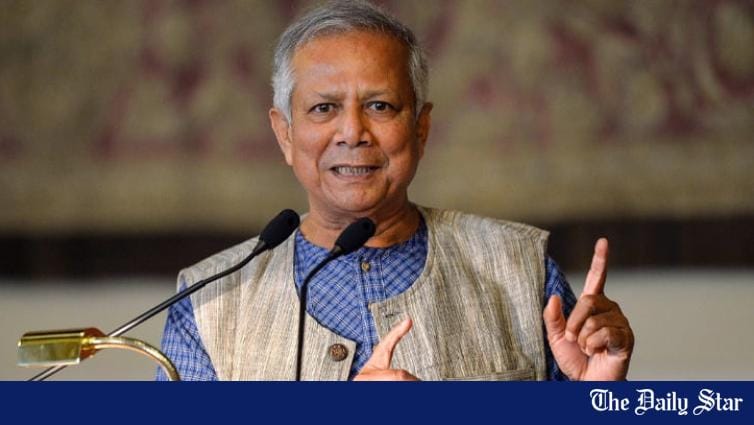Saif
Senior Member
- Joined
- Jan 24, 2024
- Messages
- 17,104
- Likes
- 8,163
- Nation

- Residence

- Axis Group


Protesters call off demo near home adviser’s residence
Demonstrators alleged that he failed to prevent attacks on students in Noakhali's Hatiya
Protesters call off demo near home adviser’s residence

Photo: Screengrab from Facebook Live
Protesters called off the demo near home adviser's residence early today after assurances from the government.
Earlier, demonstrators marched towards the home adviser's residence with the intent to besiege it, protesting his alleged inaction in preventing attacks on students in Noakhali's Hatiya.
Around 12:30am, the protesters, led by Abdul Hannan Masud, chief organiser of Students Against Discrimination, left Rupayan Tower in Banglamotor for the Lt Gen (retd) Jahangir Alam Chowdhury's residence, breached police barricade and took position near Minto Road.
On Facebook live, he was seen protesting at Banglamotor with a group.

Photo: Screengrab from Facebook Live
Around 2:45am, Youth and Sports Advisers Asif Mahmud went to the spot to reassure the protesters.
Addressing the crowd, he said, "Law enforcement is better now that what it was previously. We are trying to improve law and order situation in the country. We request you to help us and law enforcers in maintaining peace."
He said he will discuss today's incident in Hatiya with the home adviser. Following this, the protesters left the spot.
Earlier last night, Masud made three Facebook posts starting from 11:00pm, calling students to join him at the protest.
In his first post, he said former MP Mohammad Ali's men have fired at students from his residence at his hometown in Hatiya.
In his second post, Masud wrote, "I am heading to the home affairs adviser's residence and will stay there from 12:30am. They will sleep while Awami League's thugs open fire on students. Those who want to join me, come."
Referring to home adviser's inaction, he said Mohammad Ali's den, full of arms, is right beside the Navy camp in Hatiya.
Photo: Screengrab from Facebook Live
Protesters called off the demo near home adviser's residence early today after assurances from the government.
Earlier, demonstrators marched towards the home adviser's residence with the intent to besiege it, protesting his alleged inaction in preventing attacks on students in Noakhali's Hatiya.
Around 12:30am, the protesters, led by Abdul Hannan Masud, chief organiser of Students Against Discrimination, left Rupayan Tower in Banglamotor for the Lt Gen (retd) Jahangir Alam Chowdhury's residence, breached police barricade and took position near Minto Road.
On Facebook live, he was seen protesting at Banglamotor with a group.
Photo: Screengrab from Facebook Live
Around 2:45am, Youth and Sports Advisers Asif Mahmud went to the spot to reassure the protesters.
Addressing the crowd, he said, "Law enforcement is better now that what it was previously. We are trying to improve law and order situation in the country. We request you to help us and law enforcers in maintaining peace."
He said he will discuss today's incident in Hatiya with the home adviser. Following this, the protesters left the spot.
Earlier last night, Masud made three Facebook posts starting from 11:00pm, calling students to join him at the protest.
In his first post, he said former MP Mohammad Ali's men have fired at students from his residence at his hometown in Hatiya.
In his second post, Masud wrote, "I am heading to the home affairs adviser's residence and will stay there from 12:30am. They will sleep while Awami League's thugs open fire on students. Those who want to join me, come."
Referring to home adviser's inaction, he said Mohammad Ali's den, full of arms, is right beside the Navy camp in Hatiya.







































